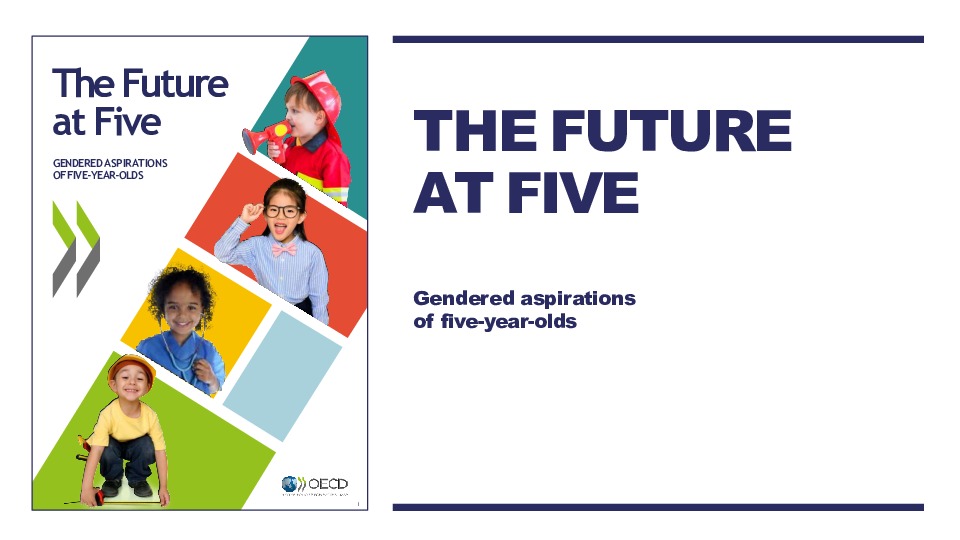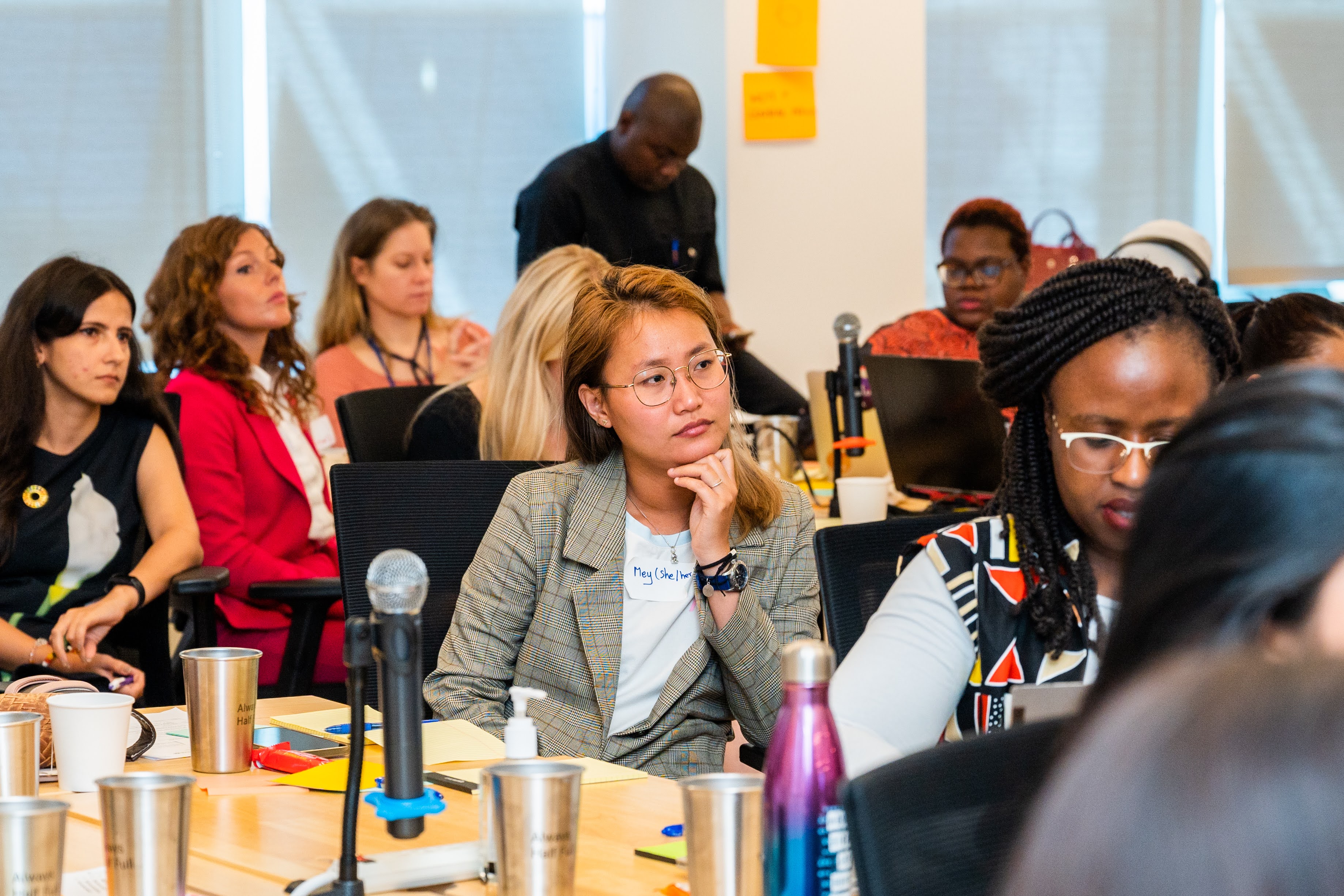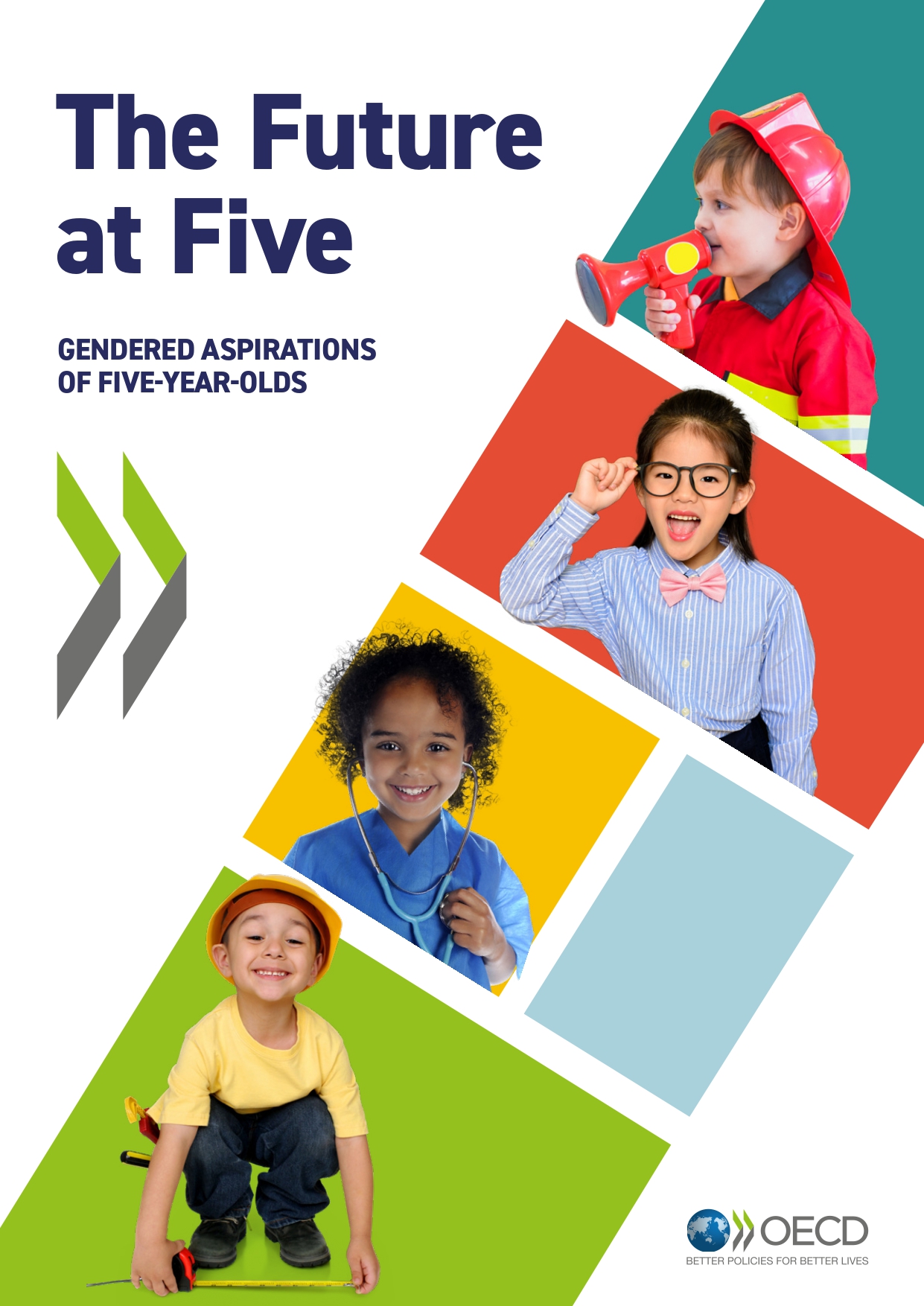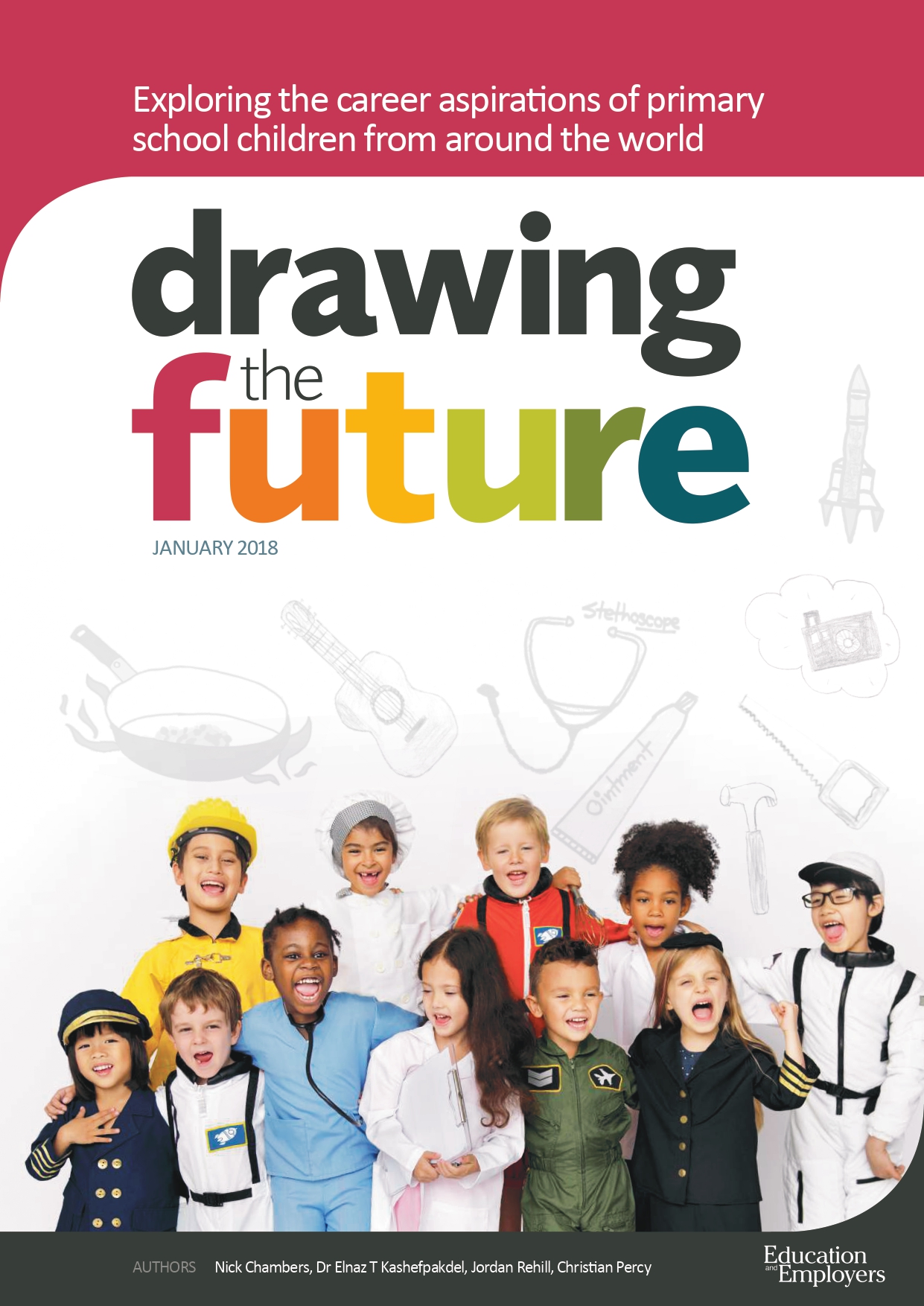Knowledge Hub
Learning and resources on gender in education

The future at five: How do gender stereotypes affect five-year-olds’ ideas about their future?
Many of us will remember being asked at a young age what we wanted to be when we grew up. What answer did we give, and why did we give that answer? What shaped our ideas about the working world? Children’s understanding of which jobs are available is often influenced by what they see the adults in their lives doing, which in turn influences their choices and motivation in school. According to new evidence from the OECD International Early Learning and Child Well-Being Study (IELS), gender norms are...
Many of us will remember being asked at a young age what we wanted to be when we grew up. What answer did we give, and why did we give that answer? What shaped our ideas about the working world? Children’s understanding of which jobs are available is often influenced by what they see the adults in their lives doing, which in turn influences their choices and motivation in school. According to new evidence from the OECD International Early Learning and Child Well-Being Study (IELS), gender norms are evident in what many five-year-olds say about what they want to be when they grow up, leading to imbalanced gender representation in certain fields later on in schooling – and later on in life.
This presentation was shown during a webinar on what education systems can do to tackle gender stereotyping in the early years of education. Andreas Schleicher presented the latest data from IELS and what it means for education, followed by a panel discussion with experts working in the field of gender equality.
Speakers include:
• Andreas Schleicher, Director, OECD Directorate for Education and Skills
• Erin Ganju, Manager Director, Echidna Giving
• Nuria Oliver, Academic Director, Girls and Engineering, and Co-founder and Vice President, ELLIS
• Nick Chambers, Chief Executive, Education and Employers
Moderator:
• Justine Sass, Chief, Section of Education for Inclusion and Gender Equality, UNESCO
More to explore
Sign up to the UNGEI newsletter
 en
en 


 العربية
العربية Български
Български Hrvatski
Hrvatski Čeština
Čeština Dansk
Dansk Nederlands
Nederlands Suomi
Suomi Français
Français Deutsch
Deutsch Ελληνικά
Ελληνικά हिन्दी
हिन्दी Italiano
Italiano Română
Română Русский
Русский Español
Español Maltese
Maltese Zulu
Zulu አማርኛ
አማርኛ